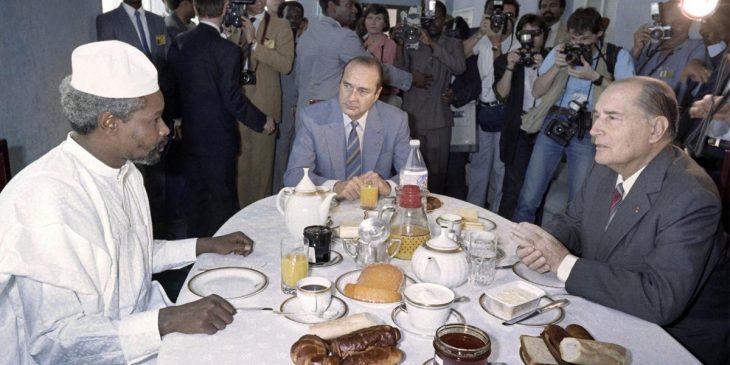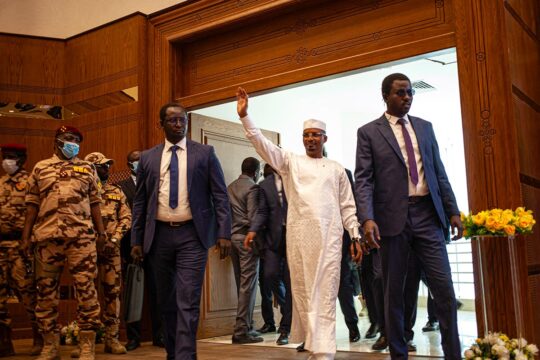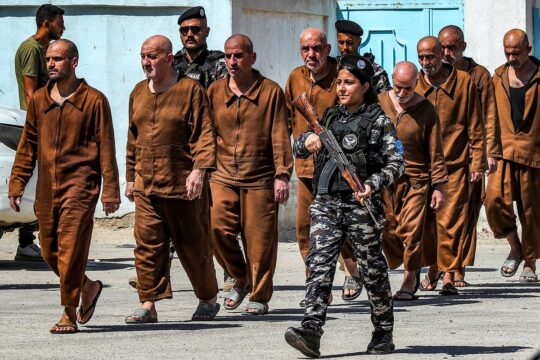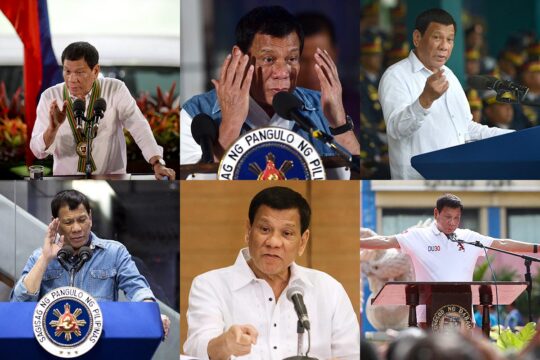The United States and France supported Hissène Habré, the former Chadian dictator who was convicted of atrocity crimes on May 30, 2016, throughout his rule, Human Rights Watch said in two reports released today.The 64-page report, “Enabling a Dictator: The United States and Chad’s Hissène Habré 1982-1990s,” and the 142-page “Hissène Habré: Supported by France, Convicted by Africa,” describe how France, and especially the United States, were pivotal in bringing Habré to power, despite his reputation for brutality.
Human Rights Watch describes how both the United States and France provided Habré’s government with critical support, even as it committed widespread and systematic human rights violations. The two countries saw Habré as a bulwark against the expansionist designs of Libya’s Muammar Gaddafi, whose forces were occupying northern Chad.
“The United States and France were well aware of Habré’s brutal record, and yet continued to support him throughout his rule,” said Reed Brody, counsel at Human Rights Watch who has worked with Hissène Habré’s victims since 1999. “Both countries should examine how and why they supported a man convicted of crimes against humanity.”
Habré was convicted of crimes against humanity, war crimes, and torture, including sexual violence and rape, by the Extraordinary African Chambers in the Senegalese court system and sentenced to life in prison. The verdict came after his victims worked for more than two decades to see him put on trial.
Both the US and France should establish official inquiries to determine what officials knew about the commission of international crimes and whether any steps were taken to mitigate them, Human Rights Watch said.
In praising Habré’s “landmark” conviction, US Secretary of State John Kerry said it was “an opportunity for the United States to reflect on, and learn from, our own connection with past events in Chad.”
Habré’s one-party rule was marked by widespread atrocities, including waves of ethnic cleansing. Files of Habré’spolitical police, the Direction de la Documentation et de la Sécurité (DDS), which Human Rights Watch recovered in 2001, reveal the names of 1,208 people who were killed or died in detention, and 12,321 victims of human rights violations.
Under President Ronald Reagan, the US provided covert assistance in 1981 and 1982 to Habré’s rebel forces to help him unseat president Goukouni Oueddei, who was seen as pro-Libyan, and then gave Habré’s government millions of dollars in military and security assistance. While there is no evidence of direct US involvement in or active support for international crimes in Chad, the former director of the DDS, speaking at his torture trial in Chad in November 2014, said that he was “constantly assisted by a CIA agent who provided me with advice.” Recovered DDS documents show that a US embassy official whom the Chadians considered to be the “liaison” with the DDS visited the DDS headquarters – which included a torture chamber, and Habré’s underground “Piscine” prison – at the height of the repression against the Zaghawa ethnic group.
The United States also used a secret base in Chad to create and train a small army of anti-Gaddafi Libyan “contras” from among the ranks of captured Libyan troops. The leader of the “Contra” force was Khalifa Haftar. He now leads the Libyan National Army, which controls much of eastern Libya.
Despite the abduction of the French anthropologist Françoise Claustre by Habré’s forces in 1974 and the murder of Captain Pierre Galopin, who went to Chad to negotiate her release in 1975, France also supported Habré. France provided him with arms, logistical support and information, and carried out large military operations to help Chad push back Libyan forces. Each department of the Chadian military had a French adviser. The French intelligence service (DGSE) and the French Army also trained DDS and army officers, in some cases in France itself, including the current president, Idriss Déby Itno, who ousted Habré in a 1990 coup, and the former DDS director, Guihini Korei, who is now at large
In one incident in mid-1983, France sent about 30 mercenaries to support Habré as he fought to stay in power against Libya and Libyan-backed Chadian factions. The mercenaries fought alongside Habré’s Chadian army troops at the battle of Faya-Largeau, where the army committed grave abuses. Shortly thereafter, France began Operation Manta, its largest deployment since the Algerian war. French airplanes were sometimes used to transport the government’s prisoners.
The Obama administration has strongly supported the victims in their campaign for justice. In a June 2013 meeting in Dakar with Senegal’s president, Macky Sall, President Barack Obama hailed Senegal's efforts to prosecute Habré. In April 2016, after the trial but before the verdict, the US ambassador to the United Nations, Samantha Power, met in Chad with the victims and their lawyers, and praised their pioneering efforts The US government contributed US$1 million, and France contributed €300,000 to the court’s budget of approximately US$11 million.
The article is published by Human Rights Watch.






